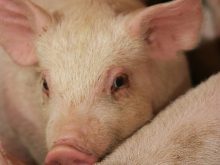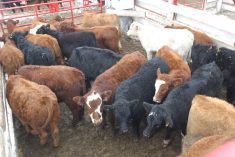Percy Schmeiser wants another day in court with Monsanto.
The Bruno, Sask., farmer has launched an appeal of the Federal Court of Canada decision that found him responsible for growing Roundup Ready canola without a licence.
In the notice of appeal, to which Monsanto has not yet replied, Schmeiser’s lawyers attack many aspects of judge Andrew MacKay’s May 23 ruling. They say it was unfair to make Schmeiser prove his fields were inadvertently contaminated, rather than forcing Monsanto to prove he wrongfully obtained it.
During the trial, Monsanto claimed Schmeiser knew that he was growing Roundup Ready canola, but did not try to prove where he obtained the seed.
Read Also

Critical growing season is ahead for soybeans
What the weather turns out to be in the United States is going to have a significant impact on Canadian producers’ prices
Schmeiser claimed the canola came from three sources: wind and bees spreading Roundup Ready pollen, full seeds that blew off grain trucks passing his fields, and rolling swaths carrying the unwanted crop onto his land.
Schmeiser said a small section of one field became heavily polluted with Monsanto’s patented gene, and that he harvested that separately and used that seed for the next year’s crop.
Monsanto argued that Schmeiser’s fields could not have become so heavily contaminated by wind, bees, trucks or any other method. The company said his claims were scientifically impossible.
Schmeiser’s appeal argues:
- It is wrong to say that a farmer does not have the right to grow a patented seed if it ends up on his land “by passing trucks or machinery, blown into the field from swaths from a neighbour’s land, or from pollen carried into the field by wind, insects or birds.”
- It is wrong to find a farmer guilty of infringing the patent merely by growing the crop, regardless of whether he takes advantage of the crop’s special traits.
- It is wrong to determine that Monsanto had not waived its patent by releasing something into the environment that can spread and perpetuate itself.
- It is wrong to put the onus on the farmer to prove that his crop was contaminated.
- It is wrong to accept Monsanto’s in-house tests and to disregard other tests.
- It is wrong to allow improperly or illegally obtained material to be used as evidence.
- It is wrong to make Schmeiser pay his profit on the crop to Monsanto because the company had not proved he had made any commercial gain from it.
Neither Schmeiser nor Monsanto have sat still since the case.
Schmeiser has been travelling the world, speaking against GM crops and arguing that farmers everywhere are in danger.
Monsanto has been preparing to introduce Roundup Ready wheat as well as selling its popular Roundup Ready canola. In 2000 almost five million acres of Roundup Ready canola were planted on the Prairies.

















